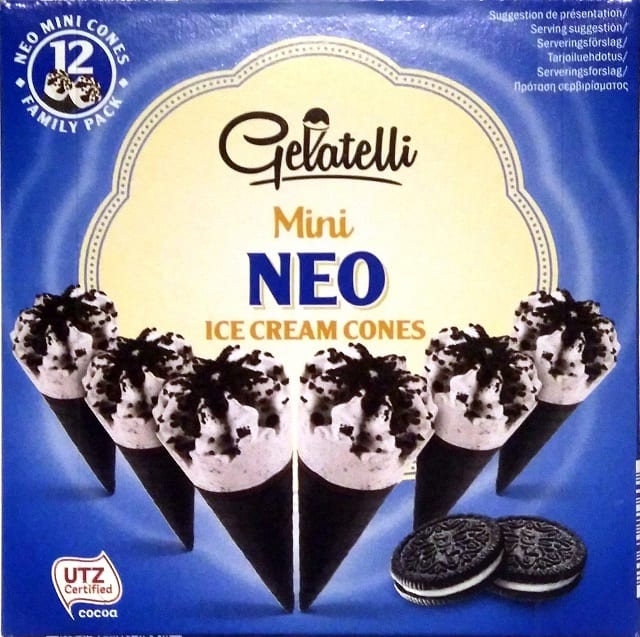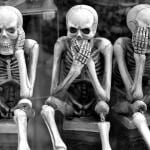
Phillip Campbell (aka, “Boniface”), runs the blog, Unam Sanctam Catholicam. We clashed now and then through the years (about broadly “traditionalist” issues), but then I invited him to do a talk at my house in March 2016 (which he has written about), and we became more friendly. I am particularly fond of his book, The Book of Non-Contradiction: Harmonizing the Scriptures (Grass Lake, Michigan: Cruachan Hill Press, 2017), which I glowingly reviewed.
I have no intention to not be friendly or cordial going forward. Presently, I am simply seeking clarification of terms. His words will be in blue.
*****
I was under the impression (possibly mistaken, but I don’t think so) that Phillip was on record saying that it was unhelpful and/or unnecessary to self-describe as “traditionalist.” I enthusiastically agreed with the sentiment at the time, since I had been arguing for years that the category was (or should be) redundant: that “orthodox” was a completely adequate qualifier for the word Catholic (if indeed one is needed at all. In certain contexts it is necessary, I grant).
I took a look at Phillip’s blog today, out of curiosity, and was surprised that he was still massively using the word “traditionalism.” A search on his site revealed that he has used the term no less than 58 times, and “traditionalist” 95 times. I was much more dismayed and shocked, however, to discover that he used the [ostensibly derogatory] term “neo-Cath” or “neo-Catholic” 11 times (my bolding throughout):
Except it is precisely neo-catholic bloggers and apologists who for the past twenty-years have been insisting that we do just that – pay attention to every little sneeze out of the Vatican, publish the transcript of every single papal interview and commentary, no matter how casual, and insist that the faithful hang on every word out of the pope’s mouth. This has been standard neo-cath fare for decades now. Now with Francis, we are being told it’s “weird” and “really isn’t important” – even though under the previous two pontificates this sort of hanging on news from the Vatican was extremely important, or so the neo-caths told us so. (12-10-14)
Usually I don’t waste my time arguing with neo-Cath apologists on online forums, but I recently had the opportunity of engaging in a tit-for-tat with His Sheaness [Mark Shea] on Facebook. [1-23-15]
Then Mark Shea jumps in and tosses out a typical neo-Cath canard: that of the mean traddie Pharisee: (ibid.)
Also, note “since I’m not forming or becoming a priest, I don’t much care what the Church does.” That’s pretty astonishing, but not really that surprising, given an increasing amount of neo-Caths seem to be taking this approach; remember Simcha’s statement that nothing going on in Rome or in the Curia was important to her? (ibid.)
It is evident that nothing has changed since 2008 – except public opinion. And now we are seeing a neo-Cath shift to bend with the winds. (ibid.)
But I think this thread demonstrates some inherent problems in the neo-Cath position: To what degree will we see that alleged orthodoxy to the Church is really just a matter of supporting what is viewed as “current policy”? Is there not a problem with viewing a perennial discipline as merely “policy”? (ibid.)
Ultimately, the neo-Cath strategy is to insist loudly that certain things can never be changed so long as the current Pontiff does not want to change them; then, when the “policy” changes with another pontiff, suggest just as loudly that such matters were never immune from change to begin with. (ibid.)
These sorts of talking-points are what I would loosely refer to as the Neo-Cath answer to clerical sex abuse. I understand this paradigm very well. It is one I used to profess for years. It is comforting because it reassures us that nothing is wrong in our house that is not common to all houses; it casts the Church as the good guys fighting off a demonic attack manifest as biased reporting from a hostile secular press. The demonic attack is fundamentally from outside. (7-2-20)
Predictably, the neo-Cath “He was misquoted!” crowd was out en masse within 24 hours. Perhaps he was. If so, I look forward to Francis’s forthcoming formal, unambiguous clarification that he actually believes all homosexual unions of any sort are intrinsically immoral and should not be given civic recognition. That will happen, right? Probably right after he answers the dubia. (10-22-20)
So my question to Phillip is: how do you define this term “neo-Cath”? Is it simply what has been called a liberal / heterodox / progressive / dissident Catholic? Then why not use one of those terms: far more widely in use (and the first and third are what these sort of Catholics call themselves)?
Or does it mean one who is politically liberal, but not necessarily theologically liberal? I have noted this many times, myself, about Mark Shea: that he was far left politically, but theologically orthodox, as far as I can tell. Thus, in all honesty, these distinctions must be noted, lest people be confused about what he believes, or lest we unethically misrepresent him and bear false witness. It may be the same with Simcha Fischer, but I have never read her material very much, so I don’t make any definite claim, per the same ethical principles I here address.
Does it mean one who simply attends (or celebrates) the ordinary form Mass? That would be (I guess) 95% of all Catholics; maybe more.
Does it mean “new convert”? The literal meaning, “new Catholic” might perhaps suggest this.
Does it mean “one who accepts Vatican II: an ecumenical council which Cardinal Ratzinger in 1985 noted had precisely the same legitimacy and authority as the Council of Trent?
Am I, for example, in this same “neo-Cath” boat as Mark Shea and Simcha Fischer? Are there no important distinctions to be drawn? I’ve argued (in 2015) that I am virtually a “traditionalist” myself: at least in many important ways. I have been scathingly critical of Mark’s politics, but have maintained that he is a good (and quite eloquent) orthodox Catholic apologist, insofar as he ever actually does apologetics anymore: but referring mainly to his more well-known books. By the same token, I respectfully disagreed with several of the pope’s stated political positions in his latest encyclical, while I have steadfastly defended him as theologically orthodox, these past seven years (178 times, in fact).
So what does it mean? I would like to see a solid definition, along the same lines as my own coined term, radical Catholic reactionary, which I have defended many times, at length.
I have critiqued the term at least four times: if anyone wants to see the basis for my extended criticism of it:
Neo-Catholic (Silly Radical Catholic Reactionary Term) [4-21-05]
Objections to the Reactionary Epithet Neo-Catholic [3-9-07]
Definitions: Radical Catholic Reactionaries, Mainstream “Traditionalists,” and Supposed “Neo-Catholics” [revised 8-6-13]
Debate: Am I a Neo-Catholic? (Defined as Theological Liberal / Progressive / Enabler of Modernism) [vs. Mr. X] [6-11-14]
I look forward to my friend Phillip’s response.
***
Photo credit: [world.openfoodfacts.org / Creative Commons Attribution-Share Alike 3.0 Unported license. (Original Image)]
***












